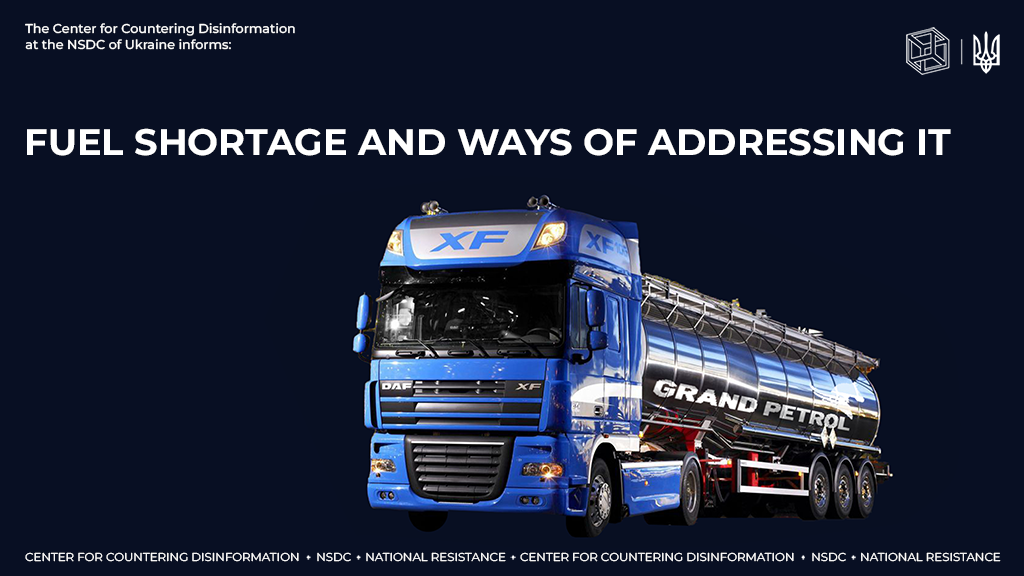The main factors include the shutdown of Ukraine’s largest petroleum producer, the Kremenchuk Oil Refinery, which was destroyed by rocket attacks, as well as the blocking of sea ports, which resulted in the enemy cutting off the supply of most of the raw materials.
In addition, almost two dozen oil depots were damaged, which also caused difficulties with fuel storage and supply. Changes in tax rules have also contributed to the instability.
Traders are demanding the cancellation of the fuel price ceiling. As a result of government price controls on fuel and higher logistics costs, wholesale fuel prices have become higher than retail prices. The temporary shortage of fuel at Ukrainian petrol stations was also caused by the high demand for petroleum products by the Armed Forces of Ukraine and law enforcement agencies.
Presently, the petroleum product market is being refocused to supplies from Western Europe instead of supplies from russia and Belarus. In 2021, 62% of diesel fuel and 50% of petrol came from russia and Belarus. Another 10% were imported from Lithuania and by sea. The war has cut off these routes.
The only source of fuel today is Europe with its huge market, oil refineries, ports and other transportation infrastructure. However, there are also logistical difficulties in supplying fuel from Europe, such as a shortage of railway tankers and petrol tankers, the difference in rail gauge between Europe and Ukraine, and the lack of appropriate transport capacity to bring fuel from Europe in a timely manner. In particular, the capacity of European ports is limited.
The optimal way of delivering European fuel today is by petrol tankers, so the volume of fuel supplies is still limited. The pace of deliveries is affected by significant queues at the border, insufficient petrol tankers, and the slowdown in crossing the border for male drivers.
Large oil traders that contract railway consignments of fuel do not yet have enough of it, while small companies do, but it is more expensive due to logistics costs. Thanks to an agreement between the Ministry of Infrastructure of Ukraine and the Ministry of Infrastructure and Development of Poland, Ukrainian vehicles, including empty petrol tankers, are now able to freely enter Poland to load fuel and transport it to Ukraine.
From now on, petrol trucks will be able to go abroad to buy fuel without wasting time on obtaining permits for commercial transport of goods through the territory of other countries. All vehicles importing fuel from Latvia, Lithuania, Estonia and Denmark will be able to enter Ukraine without special permits by the end of the year. Italian, Greek, and Hungarian permits have been cancelled until 30 June this year. Bulgarian, Czech and Austrian carriers – for the period of martial law.
At the same time, anti-russian sanctions are accelerating the process of diversification of the global fuel market. European oil refining majors have already refused or expressed their readiness to replace russian oil and petroleum products. Therefore, the oil market is expected to be reformatted in the nearest future, and the supply of European fuel to Ukraine will be boosted.










